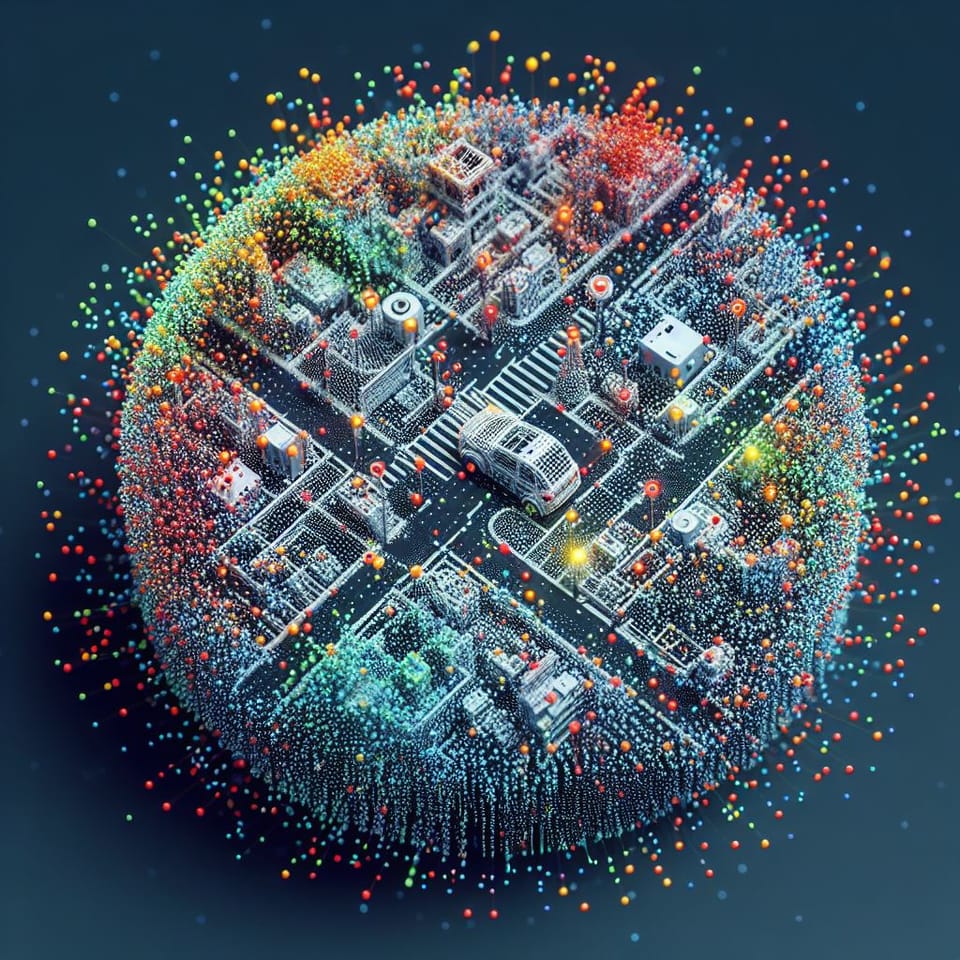Top 10 Point Cloud Open-Source Libraries

If you are a Robotics Engineer working on humanoid robotics, autonomous vehicles (self-driving cars), surgical robotics, or AR/VR projects, you may need to work with point clouds. Here's a list of top 10 open-source libraries used in Robotics:
1- 𝐏𝐨𝐢𝐧𝐭 𝐂𝐥𝐨𝐮𝐝 𝐋𝐢𝐛𝐫𝐚𝐫𝐲 (𝐏𝐂𝐋): The industry standard for comprehensive processing tasks like filtering, segmentation, registration, and visualization.
2- 𝐏𝐃𝐀𝐋 (𝐏𝐨𝐢𝐧𝐭 𝐃𝐚𝐭𝐚 𝐀𝐛𝐬𝐭𝐫𝐚𝐜𝐭𝐢𝐨𝐧 𝐋𝐢𝐛𝐫𝐚𝐫𝐲): Build efficient and flexible processing pipelines for complex workflows.
3- 𝐎𝐩𝐞𝐧𝟑𝐃: A powerful and user-friendly library for point clouds, meshes, visualization, and even 3D deep learning (Python/C++).
4- 𝐂𝐥𝐨𝐮𝐝𝐂𝐨𝐦𝐩𝐚𝐫𝐞: Open-source software for processing and editing 3D point clouds and meshes, offering a wide variety of tools.
5- 𝐌𝐞𝐬𝐡𝐋𝐚b: An open-source system for processing and editing unstructured 3D triangular meshes. Useful for cleaning, resampling, and conversion to meshes.
6- 𝐏𝐎𝐓 (𝐏𝐨𝐢𝐧𝐭 𝐂𝐥𝐨𝐮𝐝 𝐓𝐨𝐨𝐥𝐤𝐢𝐭): A JavaScript library designed for efficient rendering and interaction with large point cloud datasets in web browsers.
7- 𝐋𝐚𝐬𝐏𝐲 (𝐏𝐲𝐭𝐡𝐨𝐧 𝐋𝐢𝐃𝐀𝐑 𝐩𝐫𝐨𝐜𝐞𝐬𝐬𝐢𝐧𝐠): Work seamlessly with LiDAR data stored in LAS format using this Python library.
8- 𝐏𝐲𝐧𝐭𝐂𝐥𝐨𝐮𝐝: A Python library offering a simple and user-friendly API for basic point cloud processing tasks.
9- 𝐜𝐢𝐥𝐚𝐧𝐭𝐫𝐨: A C++ library designed for high-performance point cloud processing, offering efficient algorithms for various tasks.
10- 𝐏𝐲𝐕𝐢𝐬𝐭𝐚: Simplify visualization and mesh analysis for point cloud data in Python. PyVista leverages the Visualization Toolkit (VTK) for powerful rendering.
Member discussion